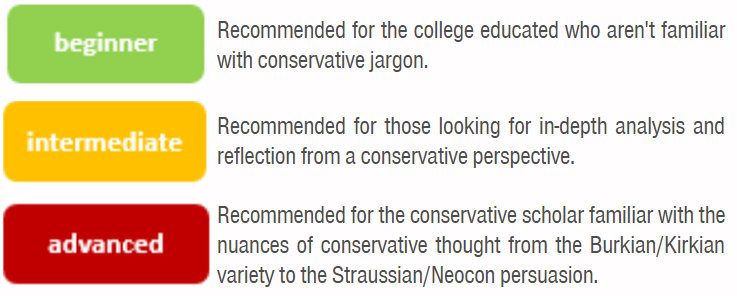
This post was written by guest blogger Justin Stapley. His bio appears at the the end of the post.
Many of President Trump’s supporters tend to see numerous similarities between Donald Trump and Ronald Reagan. They point at the irrational fear that gripped the media and others as President Reagan took office in order to excuse current fears of Donald Trump’s presidency. They point at Reagan’s past as a member of the Democratic Party to excuse Donald Trump’s former left-leaning beliefs and activity in Democratic circles. They trumpet the fact that Making America Great Again was one of Reagan’s slogans and believe that Trump is returning to form, shaking things up, and re-establishing Reagan Era conservatism by refusing to back down and refusing to be politically correct. They disregard concerns about Trump’s ability to hold office given his lack of experience and ignore derisions of Trump as a reality tv politician by saying, “They said the same about Reagan the actor!”
While there are definitely some circumstantial similarities, these are predominantly surface parallels. A deeper inspection would reveal that Ronald Reagan had very stark fundamental differences with Donald Trump which amount to distinct underpinnings of ideological disagreement and dramatically alternate visions for the direction of the country.
Ronald Reagan and Modern Conservatism’s Coalition
Ronald Reagan was President at the juncture of history which many political scientists and historians consider the height of modern conservatism. He not only presided over a moment in our nation’s history where the largest swath of American voters affirmed their acceptance of a conservative national direction but also at a point where conservatism in general was the most united around a single cohesive vision.
Modern Conservatism has been called both neo-conservatism and neo-liberalism because it involved a developed coalition between three generalized factions represented by Barry Goldwater (libertarians), Pat Buchanan (paleoconservatives/social conservatives), and Henry Kissinger (foreign policy hawks). Ronald Reagan was a successful candidate and effective president largely because he tapped into, maintained, and championed the unique ideology of this coalition while maintaining flexibility in policy as realities dictated. This unique ideology, which is often called fusionism, involves being chiefly concerned with limited government, moral imperatives, constitutional orthodoxy, fiscal responsibility, and international strength with singular and pragmatic purpose.
The Coalition is Dead
It is important to understand that the coalition of modern conservatism is dissolved and its ideology is fragmented. Modern conservatism has generally devolved into separate bickering camps of libertarians (Mike Lee, Rand Paul, Justin Amash, Thomas Massie), neoconservatives (John McCain, Lindsey Graham, Mitt Romney, Jeff Flake), and a new amalgamation of paleo and social conservatives which can be considered populist nationalism chiefly represented by Donald Trump and most conservative talk radio hosts. The reason populist nationalism has risen to the forefront of Republican Party direction is because the libertarian and neoconservative branches of conservatism vehemently oppose each other and have proven feckless in mounting a unified front in moderating the rise of populist nationalism.
The coalition fell apart for many reasons, some connected and some not. I will only attempt to list several main reasons for purposes of example. Neoconservatives dominated party leadership post-Clinton and led America into the Iraq War while engaging in Keynesian economics and centrist social platforms at home, which in turn alienated libertarians and social conservatives. Paleo and social conservatism came to dominate the conservative media complex (Fox News and Talk Radio). This complex has come to revolve mostly around personalities who have grown rich engaging in provocation and anti-intellectual punditry. That these personalities and their media companies have become the so-called “gate keepers” of conservativism has alienated libertarians and neoconservatives who must either pander to the personalities and their viewers or be left impotent and irrelevant. Meanwhile libertarians have become more and more marginalized over the last thirty years and have embraced their existence as outliers and increasingly live up to their characterizations as crackpots and anarchists. Many owe more deference to Ayn Rand (someone who cared very little for Reagan) and a branch of libertarianism more attached to European anarchism and minarchism then anything in American political traditions. This was exemplified by the behavior of overly-zealous Ron Paul supporters in the 2008 and 2012 elections (particularly the attempted hostile takeovers of Republican Party caucuses). Their hardcore adherence to extreme libertarian doctrine keeps them from engaging in coalition building or embracing the traditions of fusionism.
With the coalition dead, the conservative movement and the Republican Party was ripe for a usurper who could tap into animating and motivating anger to create a new populist nationalism.
Populist Nationalism
So, what is populist nationalism, why is it different than modern conservatism, and why does the underpinnings of this new movement make Donald Trump so different from Ronald Reagan? Chiefly it is that the motivation is not to conserve any type of moral or geo-political norms but to restore an “American Ideal” which allegedly existed sometime in the past and which now faces an existential threat of being defeated completely. This may not seem like a large difference but it is a foundational shift which creates an entirely new narrative and introduces new motivations, rationale, and behaviors. Modern conservatism was concerned with maintaining a status quo, an established order, and a balance of power under an established and constitutional orthodoxy and it sought to make its argument to as many Americans as would listen to create a “big tent”. (Reagan liked to assert that someone who agrees with you on four out of five issues is 80 percent a friend, not 20 percent an enemy)
This is in complete contrast with Donald Trump and his populist nationalist approach. Populist nationalism believes in the “Bull In the China Shop” ideal of political leadership (“Trump’s our bull in their china shop”). They feel that our nation’s government, our nation’s institutions, and our prevailing and rising “liberal” culture has engaged in a systematic attack upon “Middle America” and must therefore be torn down, burned down, and dismantled at the seams by any means and through any strategy possible. Populist nationalism is not concerned with maintaining any ideal of norms but rather with victory-at-all-costs over the “other” who is seen as endangering and preventing a return to “American Greatness”, whether that be Islamic Terrorists, Liberal Media, Illegal Immigrants, College Elites, Progressive Politicians, the GOP Establishment, Environmentalists, or any other group which is viewed as threatening or having already corroded the “American Ideal”.
While modern conservatism was concerned with orthodoxy, populist nationalism feels that any form of moral or ideological constraint weakens its ability to combat the existential threat presented by the “other” (this is why “playing by the rules” is now derided as weakness when it was once a sign of moral authority). Winning at all costs is the only consistent motivation of populist nationalism and why shifting ideals and norms are defended or attacked based on the motivation of the actions (An extra-legal executive order or arbitrary presidential action by President Obama was an outrage because it supported the “enemy” but similar behavior from President Trump is celebrated because it supports “us”).
Even with all of this, the largest difference between Trump and Reagan is that Trump has no interest in building coalitions, engaging in big tent politics, or in selling his vision to the country as a whole. In fact, his approach is the complete opposite.
President Trump believes if you’re not 100% with him than you are 100% against him and chiefly panders to his base while disregarding all others as “losers” whose opinions and concerns can be disregarded based on his electoral victory…and his followers follow him in that mantra. That’s why Mark Sanford just lost his primary election despite voting over 80% for Trump initiatives. That’s why Mitch McConnell and Paul Ryan are seen as the “evil establishment” even though their efforts have directly resulted in the majority of Trump policy victories (Neil Gorsuch and the Tax Plan are good examples). That’s why Republicans hesitant or unwilling to shout praises to Trump’s name are called RINOs, traitors, and “cuckservatives” regardless of where they may actually stand on the issues. That’s why anti-Trump protestors in the wake of the 2016 election were derided as “cry-babies” and “snowflakes” in a break against the tradition of newly elected Presidents attempting to consolidate the nation post-election (also an interesting example of cognitive dissonance considering the type of demonstrations that would have resulted from the Right had Hilary become President).
Reagan sought common cause with the various factions of conservatism and communicated to his opponents that while they disagreed in many instances he believed they still deserved a place at the table of discussion. Trump and the Republican Party under his direction are actively purging the GOP of libertarians, neoconservatives, moderates, and anybody not willing to get with the new program as well as engaging in a systematic campaign which declares any viewpoint dissenting from Trump’s vision of America as quintessentially anti-American. Reagan believed in pluralism and envisioned an America where dramatically different beliefs and ideologies could live together in coexistence under the constitutional order. Trump believes in himself as the dispenser of what American Greatness is, of what things should come first to make America First, and has made himself an avatar of America to his followers. To Trump and his supporters, opposing Trump is the same as opposing America.
From Ascendancy To the Last Puff of Smoke
Ronald Reagan so totally changed the political dynamic of the United States (He won 49 states in 1984) that for the first time since Roosevelt and Truman a full-term President was followed by a President of his own party and his opposing party was forced to pick a Democrat from Arkansas who portrayed himself as very much a moderate in order to defeat the incumbent 4 years after Reagan left office (and it still took a split conservative vote for Clinton to win). Speak to somebody about a “golden age of conservatism” and chances are they will think Reagan. Even in the ’90s Bill Clinton governed generally as a moderate (Hilary was always the true progressive believer) and most of his policy decisions would be condemned by many Obama and Trump era Democrats. Conservatism under Reagan and after Reagan was inclusive, ascendant, dominant, and indestructible.
Today, conservatism looks very different. No longer confident or inclusive it is angry and hostile. No longer ascendant as a “moral majority”, polls show a growing majority of Americans see conservatism as backwards, narrow-minded, back-biting, and even racist. Instead of dominant and indestructible, it’s opponents can easily pander to identity politics and promises of free education and free healthcare to cobble together coalitions to threaten Republicans in state and national elections. Whereas Reagan once turned the entire map red, the national electoral map looks more impossibly blue every election (Even Trump, who is heralded as the “map breaker”, lost several states which Bush won in both 2000 and 2004 and they seem increasingly unrecoverable). Ronald Reagan left his mark on Generation X (the most consistently conservative generation in most polls) by converting them to his vision and making them part of his coalition. President Trump has nearly completely alienated the Millennial Generation who now vote more overwhelmingly for Democrat candidates than any previous generation.
Many demographers, social scientists, and pollsters agree that the Democrats have a very good chance of winning the 2020 election with any candidate who is not Hillary Clinton and that whoever defeats Trump would be granted an overwhelming mandate to undo Trump’s actions and reaffirm Obama’s legacy. While Reagan left office with his legacy firmly in place and his principles held dear by a majority of Americans, if President Trump maintains his current direction he may leave office with the derision of 60-65% of American citizens (his approval ratings constantly fluctuate between the mid-30s and low-40s) and could leave conservatism hobbled by his specter for many years to come. The bombastic way in which President Trump and his supporters seek and win short-term victories on policy may very well deal a long-term total defeat in principle and vision.
Defeat Is Not Set in Stone
Despite the realities of populist nationalism, despite the bombastic and derisive approach which President Trump addresses the nation and exercises his office, and despite the rabid support he receives on one side and the rabid opposition he receives on the other, Donald Trump’s presidency does not have to be doomed as a disaster for himself and his agenda nor for the conservatism movement’s future. Really, all it would take for conservatism to turn a corner is a healthy dose of self-awareness.
If a majority of conservatives could understand many of the realities which I have attempted to lay out in this piece of writing, it could become possible to take steps towards reversing the dissolution of the once powerful conservative coalition. If this could happen there are many untapped groups of Americans which would be drawn to a renewed conservative “big tent”. Millennials, despite voting overwhelmingly for leftist politicians, also demonstrate a unique and broad support for libertarian ideas. Many of the groups engulfed in identity politics, especially recent immigrants, are forced to set aside their generally social conservative religious and cultural beliefs in order to vote for Democrats (Texas, one the most powerful bastions of conservatism, is probably so because it has embraced its Hispanic population and even sent a Hispanic conservative to the Senate). And a renewed understanding of how Reagan’s foreign policy approach struck a good balance between strength and prudence could win over many Americans equally frustrated with the foreign quagmires of Bush and Obama.
But, it needs to be understood that conservatives cannot save themselves if they continue to view the Trump presidency through rose-colored glasses. By all means, resist the resistance and call out the left-biased media for their cognitive dissonance, intellectual inconsistency, and pure hypocrisy but do so without engaging in your own exercises of the same. Turn off talk radio for a moment and recall that most of you voted for Trump because you were voting against Hilary, because Trump was the lesser of two evils, and because the Supreme Court was not something we could lose. Treat Donald Trump like the lesser of two evils he is and remind yourself that he was not the ideal candidate, he is not the ideal president, and he will never be the ideal banner-man of the conservative cause.
Conservatives have never been people that do what their President tells them to, but have traditionally been people who demand their President does as they expect him to. Conservatives were once umpires of those that claim to represent them and not unconditional cheerleaders. Conservatives once held higher expectations of character and dignity in themselves and their leaders than they do their opposition and didn’t justify failings in morals, norms, or rhetoric by engaging in toxic moral equivocations (Whataboutism). Conservatives once overcame false characterizations from the media and from their opposition by maintaining intellectual consistency, constant principles, and clear persuasive language instead of squandering copious amounts of limited political capital running interference for the unclear language of an ideologically meandering President or engaging in rhetoric useless for persuasive purposes which provides only confirmation bias for the already converted to consume.
Reagan Did Not Believe In “Trust Me” Government
“I am your voice,” said Donald Trump to the shouting praise of the Republican National Convention who had just nominated him as their presidential candidate, “Nobody knows the system better than me, which is why I alone can fix it.”
This is the main plank of Trumpism, the assertion that Donald Trump believes is his grandest argument in his case to lead the country and the thing which has motivated so many to support him and defend him no matter what. To follow Trump is to believe the system is broken, the system is corrupt, and the system cannot be fixed by anyone else but Donald Trump. To follow Trump is to believe that an attack upon him is an attack upon you because he is your voice. To follow Trump is to believe that those who cannot stomach him are okay with the status quo, are the status quo, and no longer matter.
This is what Ronald Reagan called “Trust Me” Government and it is what he chiefly stepped forward into the realm of presidential politics to oppose. 36 years before Donald Trump declared himself the sole political savior of the conservative cause, the man we affectionately remember as “the Gipper” stood at a very different Republican National Convention and spoke as if in direct challenge to the direction of the Republican Party under Donald J. Trump:
“‘Trust me’ government asks that we concentrate our hopes and dreams on one man; that we trust him to do what’s best for us. My view of government places trust not in one person or one party, but in those values that transcend persons and parties….I ask you not simply to “Trust me,” but to trust your values–our values–and to hold me responsible for living up to them.”
Conservatism does have a way forward, it does have a path back to ascendancy and endurance. It does not have to die as one last puff of smoke or go loudly, but impotently, into the night of American history. The train does not have to go over the cliff of reactionary suicide or descend into a gulf of things that were…things that will not be so again. We can still have a future but only if we can fully understand that when it comes to Donald Trump…he’s no Reagan.
from savingelephantsblog
via https://www.savingelephantsblog.com/saving-elephants-blog



